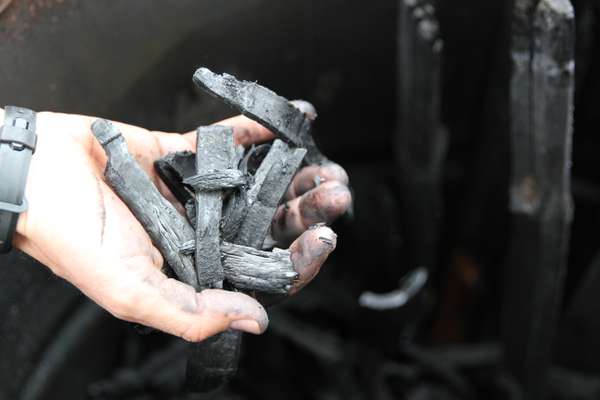ECHOcommunity Actualizaciones
EIAC 2025 Registration Closing 2025-10-14
Have you registered for the ECHO International Agriculture Conference yet? The deadline to sign up is October 24th!
You won't want to miss out on this gathering that brings together practitioners, researchers, and educators dedicated to eradicating hunger and improving lives through sustainable agriculture and community development. Through engaging plenary speakers, breakout sessions, and hands-on workshops, you'll explore practical strategies and pathways to flourishing for communities facing food insecurity around the world.
IFOAM Strengthening International Seed Network Survey available! 2025-10-07
If you are working in seed systems, please take 15 minutes to complete the survey here:
English:Mapping farmers' seed systems actors
French:Cartographie des acteurs impliqués dans la gestion des systèmes semenciers paysans
Spanish:Mapeo de los actores de los sistemas de semillas de los agricultores
The Strengthening International Seed Network Survey is the first step in a collective effort to connect and strengthen the many organizations, networks, communities of practice, and individuals working on farmers’ seeds and cultivating biodiversity around the world. This initiative is grounded in the belief that mutual support, solidarity, and knowledge-sharing are essential for advancing farmers’ seed systems. By participating in this survey, you will help:
- Map the landscape of who is working where, on what themes, and with which approaches.
- Make visible the diversity of initiatives and highlight opportunities for exchange and collaboration.
- Lay the foundation for future tools, platforms, and activities that can facilitate joint learning, coordination, and dialogue.
Your input will not only strengthen the picture of global work on farmers’ seeds but also ensure that the tools and collaborations we develop are relevant to your needs and realities.
Helping Smallholders Earn More: Agribusiness Tools for Development Workers 2025-09-30
ECHO Asia recognizes that many of the challenges faced by smallholder farmers are business-related, rather than production-related. Farmers often report market access, low prices, unfair market practices, and price volatility among their largest challenges. ECHO is scoping the demand within our network for new resources and training opportunities within the field of agribusiness.
Please respond via the link below to have your voice heard!
Do you recognize the challenges faced by smallholder farmers in engaging with markets? Are you already working in value chain development or agribusiness? We would value your feedback!
EDN Número 171 Disponible Ahora 2025-09-23
Temas de Relieve
- El árbol de neem (Azadirachta indica): un tesoro natural para proteger los cultivos
- El Enfoque de Diferencias en Diferencias para evaluar el impacto de un proyecto
- Ecos de nuestra red: uso de energía solar en invernaderos
- Del Banco de Semillas de ECHO: frijol negro (Vigna mungo), urad dahl
- Libros, Sitios Web y Otros Recursos: Integración del conocimiento autóctono y científico para lograr sistemas alimentarios sostenibles en África: el Principio “Plug-In”
El árbol de neem (Azadirachta indica)
un tesoro natural para proteger los cultivos
Hassan Djebro
Extracto:
- Recoger 5 kg de frutos caídos del árbol. Utilizar solo frutos maduros de color amarillo o marrón/ chocolate.
- Remojar en agua durante 24 horas para retirar la cáscara exterior del fruto y obtener las semillas con cáscara.
- Secar las semillas con cáscara a pleno sol durante al menos un día.
- Recoger las semillas con cáscara (fijarse que no haya cáscaras huecas, sin la semilla).
- Triturarlas con un mortero para obtener un polvo grueso.
- Colocar el producto resultante en un recipiente de plástico (un barril con tapa, un cubo con tapa,etc.).
- Agregar 10 litros de agua a la mezcla.
- Dejar reposar la mezcla durante 24 horas.
- Filtrar el producto resultante.
ECHO East Africa Innovation Exchange Conference Presentations 2025-09-16
NOW AVAILABLE
ECHO East Africa co-hosted the Innovation Exchange Conference in collaboration with Watersheds Foundation from July 16 to 18th. The conference was a time of sharing, encouraging, and learning from one another.
Presentations from speakers that you can now access include:
- Biointensive Agriculture
- Circuit Riding for WASH in Rurual Kenyan Health Stations and Schools
- Supported Self-Supply in WASH
- Maximizing Impact Through Integrated System Design: Solar, Water, and Agri-Processing
- so much more!
Dive Deeper with ECHO CEO Abram Bicksler 2025-09-07
Saturday, September 13th | Podcast (Online)
ECHO CEO Abram Bicksler will be a plenary speaker for the September meeting of the American Scientific Affiliation (ASA). Abram's Diving Deeper Discussion will discuss ECHO's mission, vision, and commitment to reaching smallholder farmers with agroecosystem strategies based on scientific evidence and local contextualization. This involves ECHO’s core functions of identifying (finding), validating (testing), disseminating (sharing resources and training), and evaluating (measuring) agricultural options that lead to effective and impactful training and dissemination of agroecosystem strategies. Join to listen live or listen to the recording and dive deep!
ISHS IV International Underutilized Plant Species Symposium 2025-09-02
Breakout Categories
Presenter sessions are in, and conveners have set the breakout session categories for October's IV International Symposium on Underutilized Plant Species.
Breakout categories are:
- Human Nutrition and Post-harvest Processing
- Plant Breeding and Genetic Resources
- Environmental Requirements and Adaptation
- Crop Managment Considerations
A Recap of the Global Holistic MEAL Symposium 2025-08-26
The Global Holistic Monitoring, Evaluation, Accountability, and Learning (MEAL) Symposium, held 7-9 July 2025 at ECHO Asia’s Regional Impact Center in Chiang Mai, brought together organizational leaders, researchers, and MEAL professionals for three days on the topic of measuring the transformative impact of holistic development efforts.
Day one featured sharing about challenges, successes, and lessons learned as well as case studies from various organizations.
Day two was facilitated through a charrette (pictured left) which brought together practical ideas, stimulated participants to work together, and facilitated consensus-based participation.
Day three started with a panel discussion on trust-based philanthropy, emphasizing how stories, statistics, and trust in an organization’s ethos and leadership go hand in hand. This was followed by a time of reflection.
Beyond the sessions, the symposium fostered networking and community-building. Attendees connected over shared interests, potential collaborations, and opportunities to drive meaningful change.
¡Gran noticia para nuestra comunidad en Centroamérica y el Caribe (CAC)! 2025-08-19
El Centro de Impacto Regional (CIR) ya tiene casa matriz en Antigua Guatemala ✨
Nuestra directora regional ya está en el lugar, dando los primeros pasos para poner en marcha este espacio y conformar el equipo que nos ayudará a dinamizar este proceso y servirles de la mejor manera 🌟
🌱 Queremos que el CIR CAC sea una herramienta viva y útil para ustedes, quienes están en primera línea, acompañando a familias y comunidades afectadas por el hambre y la desnutrición.
🚀 ¡Acompáñennos en este proceso lleno de esperanza y compromiso!
🙏 Junto a ustedes deseamos seguir trabajando para combatir el hambre y la desnutrición en nuestra región y para promover un modelo alimentario justo, sostenible y lleno de vida para la Gloria de Dios.
Free Webinar: Fire up your fertility with DIY biochar made simple 2025-08-12
August 19th | 6:00 PM EST | Free Online Webinar
Reserve your spot today and turn everyday biomass into lasting soil fertility!
Join Elliott Toevs of ECHO North America and NCAT's Gabriella Soto-Vélez for a practical deep dive into biochar.
- gather low-cost biomass
- assemble a compact kiln and fire it
- quench the biochar
- inoculate the fresh char with compost or liquid nutrients
- apply it at the right rates to boost soil structure, water-holding capacity, and microbial life
.png?w=600)
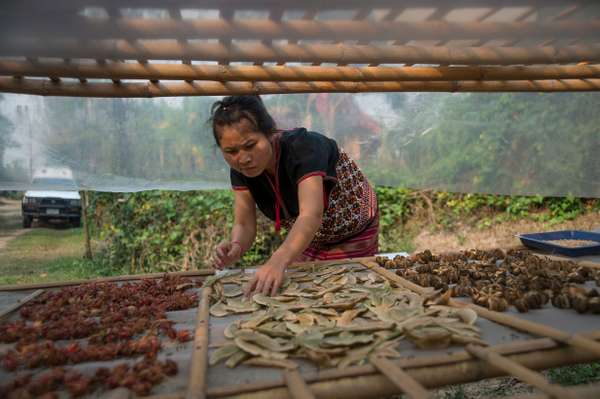
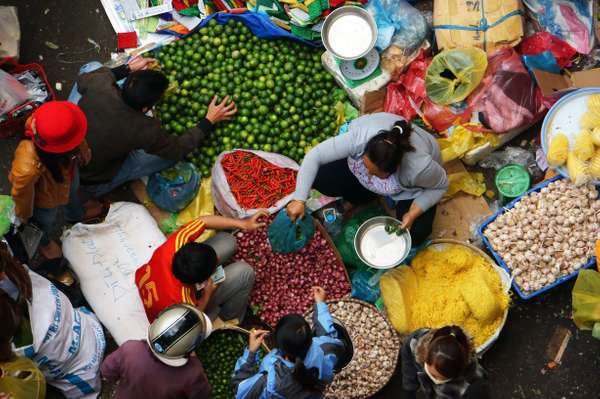
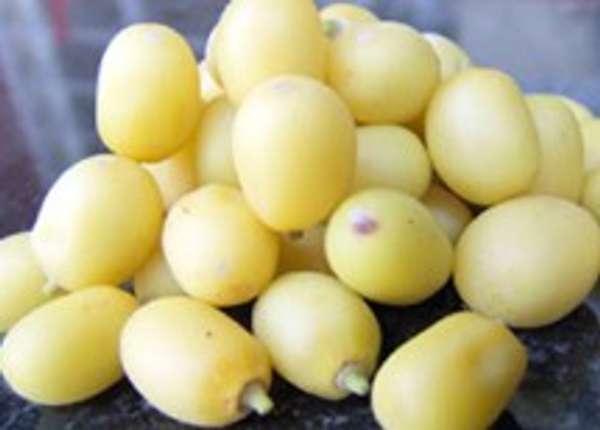
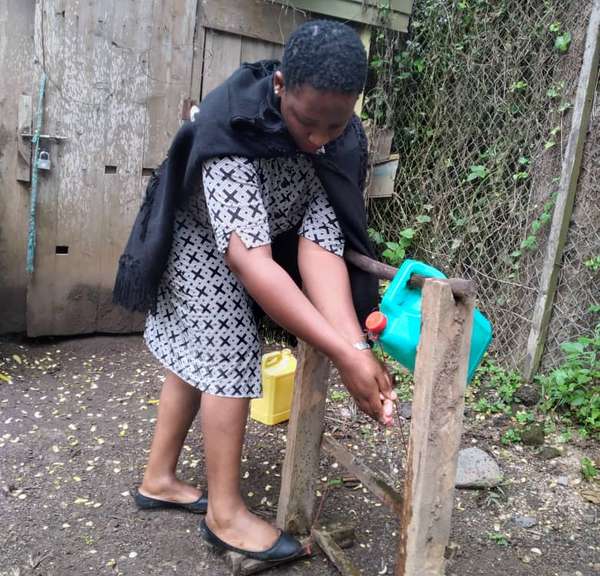
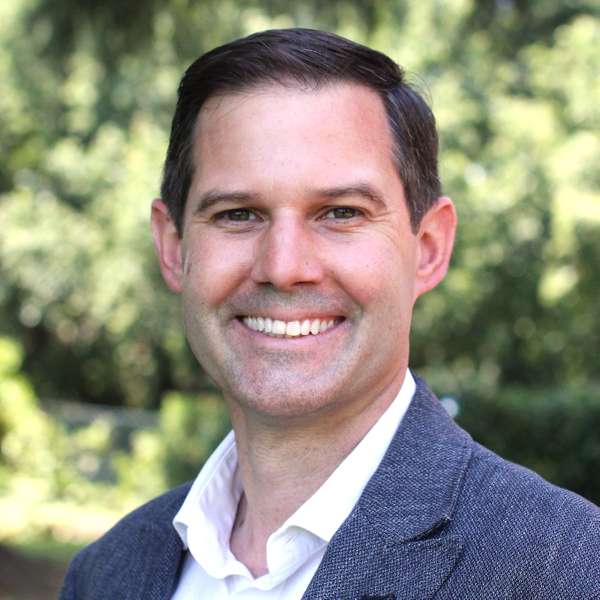
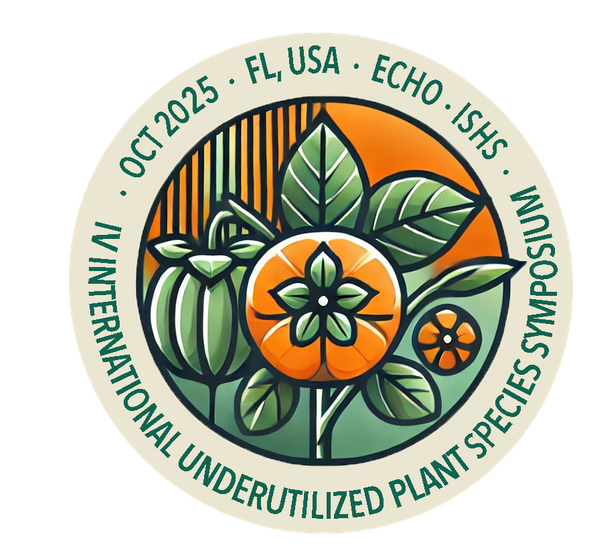
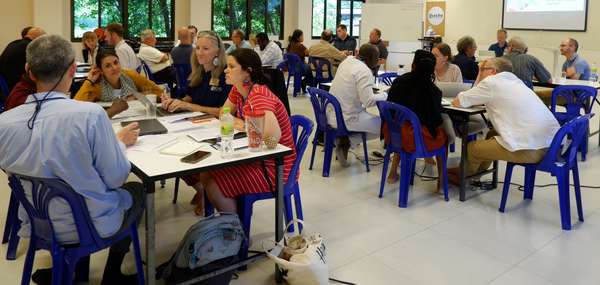
.png?w=600)
